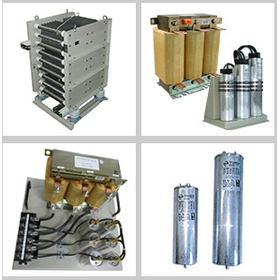Solving the harmonic issues for all households! Standardizing a wide range of lineups!
The "PHF Series" is a harmonic suppression filter that efficiently and cost-effectively reduces harmonics, which are a concern for users. It can easily meet the "Harmonic Suppression Measures Guidelines" required during new installations, expansions, or updates. By installing this product, the distortion of power voltage and current waveforms is significantly reduced, improving the total harmonic distortion rate to a single-digit level. 【Features】 ■ 90% reduction in harmonic current ■ Complies with harmonic suppression measures guidelines ■ Standardized wide lineup ■ Significantly reduces harmonic current distortion *For more details, please refer to the PDF materials or feel free to contact us.
Inquire About This Product
basic information
【Specifications】 ■ Rated Voltage and Frequency - Three-phase 50Hz 200V, 60Hz 200-220V - Three-phase 50Hz 400W, 60Hz 400-440V ■ Maximum Allowable Power Supply Voltage: Rated Voltage +10% ■ Phase Voltage Unbalance: 3% or less ■ Filter Output Voltage Variation: ±5% (from no load to full load) ■ Allowable Power Supply Frequency Variation: 50Hz +1Hz, 60Hz +1Hz ■ Load: 6-pulse rectifier inverter with DC reactor (with DCL) ■ Residual Harmonic Current Distortion: KS type 4-6%, KB type 5-8% ■ Power Loss: 1% (typical value) ■ Altitude: Below 1000m ■ Humidity: Below 95% RH (no condensation) ■ Ambient Temperature: -10 to +40°C (internal panel temperature) ■ Standards - Reactor: IEC60076, IEC60289 - Capacitor Cell Standards: IEC60831 (200V) UL Standards (600V) *For more details, please refer to the PDF document or feel free to contact us.
Price range
Delivery Time
Applications/Examples of results
【Applications】 ■ For compressors ■ For air conditioning ■ For refrigeration units ■ For blowers ■ For dust collectors ■ For generators, etc. *For more details, please refer to the PDF document or feel free to contact us.
catalog(1)
Download All CatalogsCompany information
Nishitei Co., Ltd. began developing metal resistors in 1953 and has been dedicated to this field ever since. Since obtaining a patent for the V series resistor elements in 1965, we have received high praise from major heavy electrical and machinery manufacturers, and we have been adopted for many years.





